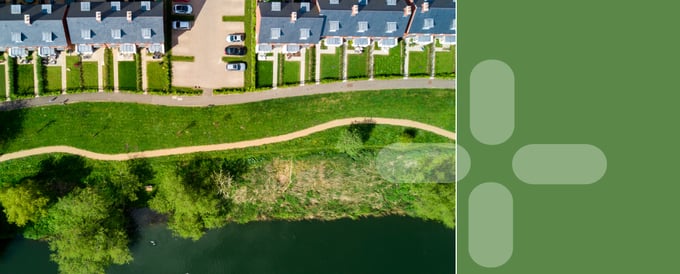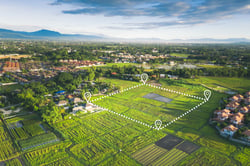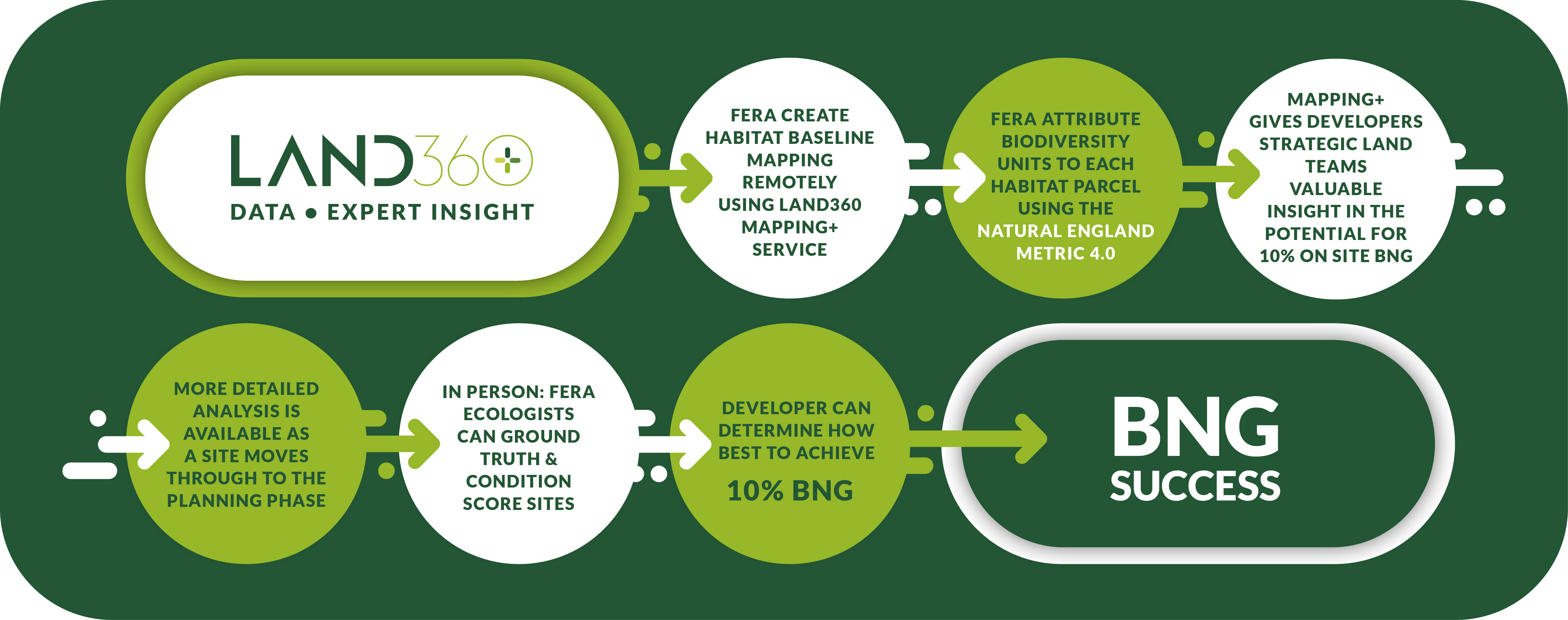Within this blog, we explain why housing developers should take the time to understand the mitigation hierarchy and how it can be used as a framework for designing plans to achieve biodiversity net gain from February 2024.

Biodiversity net gain and damage mitigation explained
Before diving into the specifics of mitigating biodiversity damage, it's crucial to understand why BNG matters.
Developers are now being advised to plan their projects with biodiversity damage mitigation in mind, and from February 2024, regulations will require developers to achieve at least a 10% net gain in biodiversity for each new construction project.
This means that for every site where development occurs, there must be a quantifiable improvement in biodiversity, resulting in a net gain.

How do developers prioritise BNG?
Paul Brown, Head of Remote Sensing, GIS and Spatial Data Science at Fera, stresses the importance of developers comprehending and applying the ‘best practice model’ of the BNG mitigation hierarchy.
The mitigation hierarchy, which officially dates back to the 1970s, is a systematic tool that is used worldwide to rationalise decision-making on BNG planning and emphasises environmental protection throughout the development process.
The hierarchy consists of four key steps that developers must follow to ensure a 'nature-first' approach to development:
- Avoidance
The first step in the mitigation hierarchy encourages developers to consider whether it's possible to avoid building on a biodiversity-rich site entirely. If initial assessments reveal critical habitats onsite, developers may be advised to explore alternative locations to prevent ecological disruption incurred by development.
- Minimisation
When it’s not feasible to avoid construction on sensitive sites, developers must strategise to counteract habitat loss, aiming for at least 10% net gain in biodiversity – a figure that will become enforced in February 2024.
Expert ecological insights, such as those provided by Fera’s LAND360 team, can guide development design to reduce environmental damage as well as protect biodiversity.
- Restoration
If some level of habitat impact is unavoidable, developers need a plan to compensate for the loss of biodiversity. This involves incorporating habitat restoration or designing new habitats, with scientific support, to ensure at least a 10% net gain is achieved for a minimum of 30 years.
- Offsetting
In certain cases, offsetting BNG with offsite habitat creation or enhancement may be necessary to meet the 10% uplift requirement. This option can be complex, since it involves sourcing, financing, and managing a third party to create habitats elsewhere.
Fera's LAND360 service: providing developers with data-led biodiversity insights
Fera’s LAND360 habitat assessment service bridges the gap between developers and ecological expertise, applying the latest geospatial technology with scientific insights.
The site assessment process generates a robust biodiversity database for each development site, evaluated using the Natural England Biodiversity Metric 4.0.

This baseline provides developers with the vital insights needed to accurately apply the mitigation hierarchy framework.
Seeking credible advice on BNG planning
Navigating the intricacies of the mitigation hierarchy within a BNG plan can be challenging.
Developers are advised to seek expert advice to ensure that the hierarchy is accurately applied from the outset, resulting in the most nature-friendly development decisions possible. This not only helps meet new BNG legislation but also enhances planning applications and delivers measurable gains for biodiversity.
By understanding and applying the mitigation hierarchy with expert support, developers can embrace a nature-first approach to their projects, actively contributing to the protection and enhancement of nature onsite, in the local area and as a wider contribution to the planet.
Planning ahead for the mandatory BNG deadline
As the deadline for mandatory BNG fast approaches, find out more about Fera’s range of services to support developers’ efforts to enhance nature and biodiversity: https://www.fera.co.uk/land360-housing-developers
More about LAND360
LAND360 is Fera's cutting-edge natural capital assessment service. Launched in 2022, it empowers farmers, landowners, estate managers, and housing developers to make informed land use decisions. By accurately measuring and mapping existing land habitat features and modelling biodiversity offerings, LAND360 is a vital tool in the quest for sustainable development and biodiversity enhancement.
